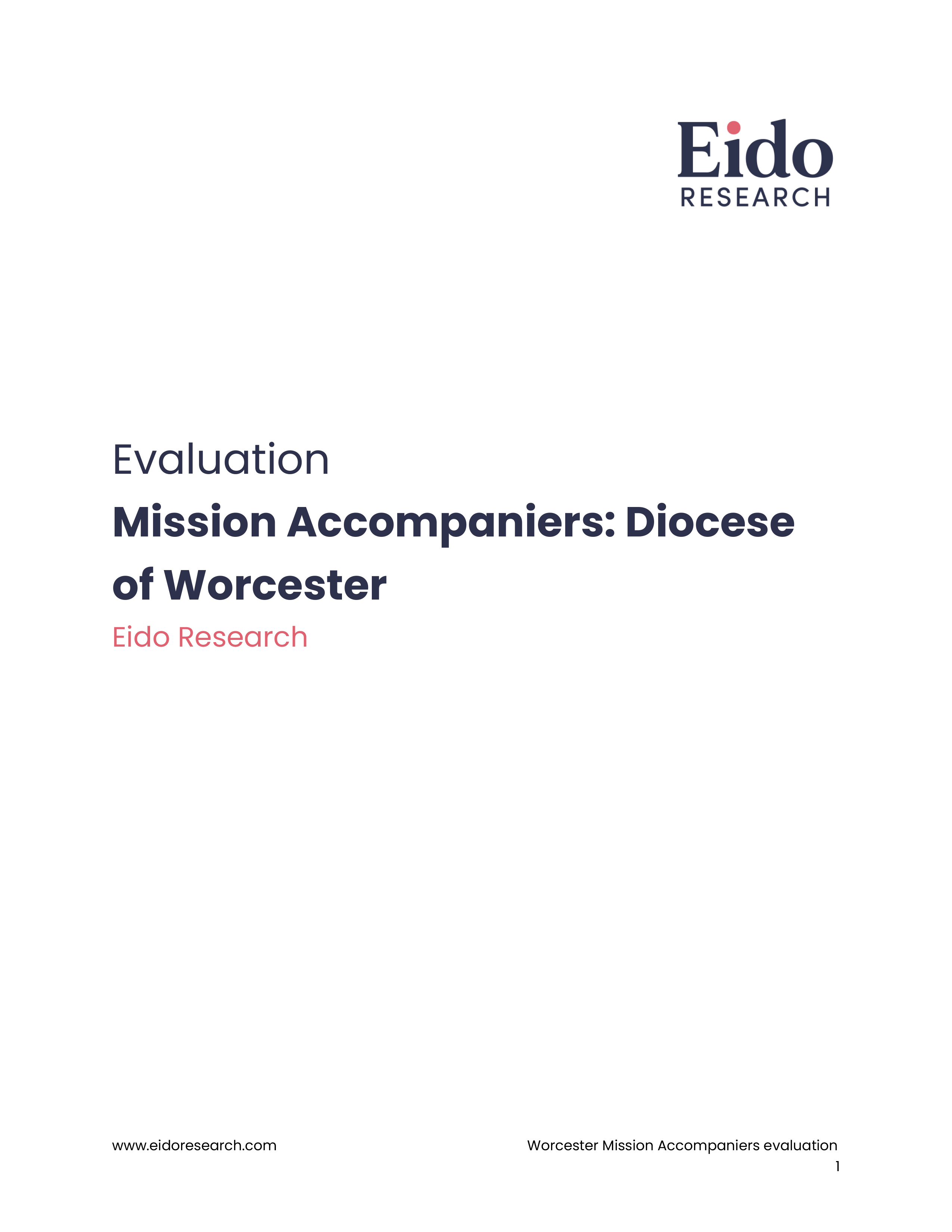 An independent review of the Mission Accompaniers scheme has found that it effectively prepared churches for mission.
An independent review of the Mission Accompaniers scheme has found that it effectively prepared churches for mission.
There was strong evidence that working with a Mission Accompanier enhanced the health and confidence of leaders and helped churches improve their strategy, gain confidence in mission, engage more with their communities, and work better as a team.
There was also some evidence to suggest that those churches with a Mission Accompanier saw increased average weekly attendance and found it easier to develop new worshipping communities. Although a small sample size made this finding hard to verify, the researchers found that those churches which participated in the scheme grew by five percent, while other churches shrank by four percent. Likewise, churches which participated in the Mission Accompanier scheme were over twice as likely to start new worshipping communities.
The research was conducted by independent agency, Eido Research, who spoke to a range of people who had been involved in the scheme. They held focus groups with Mission Accompaniers and interviewed both Mission Accompaniers group members and incumbents from five churches. There was also a wider survey of Mission Accompanier group members and participating incumbents.
The research aimed to draw out what worked with the scheme, what was not quite so successful and what could be learnt from it.
Participants said that the scheme had helped them identify a vision and focus on achieving it. Others said that the scheme had provided an opportunity to reflect and strategize. Crucially, Mission Accompaniers also provided guidance and support as churches considered how to become more missional.
Respondents also said that as a result of the Mission Accompaniers scheme, congregations had become more confident and outward-looking, with a sense of excitement about the present and possibility for the future. “There really has been a turnaround in the way the church sees themselves and what they are there for”, one Mission Accompanier said. “They are now energised and active and alive in their community in a way they were not before.”
Churches’ confidence and excitement was reflected in a changed attitude towards risk: while before the scheme just 45% of respondents had seen church members try new things and take risks, by the time of the survey, this figure was 85%.
People also felt their churches had become better known in their communities: 70% agreed that the community knew about their church and its activities at the time of the survey, as compared to 45% before. There were also some early signs of numerical growth: 53% of incumbents had seen more people attend their church for the first time after the scheme.
More than half of the Mission Accompanier group members (53%) noticed a change in their incumbent’s leadership over the course of the scheme. “I feel our vicar has a more positive approach”, one respondent said. Another commented: “It can be hard for vicars to delegate, but there has clearly been a change in that. It feels he is more able to let others lead in areas which frees up more of his time for other areas of ministry.”
Although much of the feedback was positive, the report did identify some clear learning outcomes. In some cases, unclear expectations of the scheme inhibited success and a change in incumbent or a lack of buy in from the group in the parish also had an impact. The researchers suggested that sustained change was more likely if Mission Accompaniers were able to support the parishes for longer with more time to get to know the incumbent and church, and that clear targets were important to fully understand the impact of the Mission Accompaniers on each parish.
Although 79% of those asked agreed that the changes would be sustainable, many thought that more work needed to be done to ensure the impact permeated through the whole church, not just the incumbent and those directly involved. One respondent said: “We could do better at… communication with the church so they are bought into the behind-the-scenes thinking.”
Diocesan Lead for Transformation and Change, Archdeacon Nikki Groarke, said: “It is great that this research confirmed something that we already suspected through anecdotal evidence; that those churches supported by a Mission Accompanier found that they were able to work together to develop a strategy to more effectively reach their community. Although this is only one of the interventions we have developed to help us focus on our priorities, it has obviously had an impact and churches are already seeing green shoots of growth and change.”
In conclusion, the Eido report says: “This evaluation has shown much to celebrate about the Mission Accompaniers scheme. Our findings suggest that the scheme is effective, especially at an early stage of mission. It equips churches to reach their communities and may also help them increase their attendance and found new worshipping communities.”

